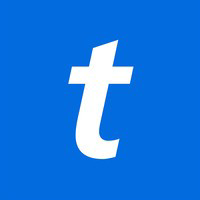About Ticketmaster
What began as a solution to a frustrating concert ticket buying experience by two university staffers in 1976 has evolved into the world's largest ticket marketplace. Ticketmaster was born in Phoenix, Arizona, from the minds of Albert Leffler and Peter Gadwa, along with businessman Gordon Gunn III. Their innovative idea was to create a computerized, networked system that would allow a ticket buyer at any vendor to see and purchase from the entire inventory of available seats for an event, a revolutionary concept at the time. The company's first ticketed event was for an Electric Light Orchestra concert at the University of New Mexico, a humble beginning for what would become a global ticketing giant. The early years were focused on establishing a foothold in an industry dominated by competitor Ticketron. A pivotal moment came in 1982 when investor Jay Pritzker acquired the company and installed Fred Rosen as CEO. Rosen's vision and aggressive business strategy shifted the company's focus towards the lucrative concert market and led to a period of rapid expansion, including its first international operations.
Throughout the 1990s, Ticketmaster solidified its market dominance, most notably by acquiring its primary rival, Ticketron, in 1991. This move, coupled with the launch of Ticketmaster.com in 1995, positioned the company at the forefront of the digital ticketing revolution. The website initially served as an informational portal but quickly evolved to handle online ticket sales, selling its first ticket online in 1996. The new millennium brought further significant changes, culminating in the 2010 merger with Live Nation, the world's leading concert promoter, to form Live Nation Entertainment. This merger created a vertically integrated powerhouse in the live entertainment industry, combining ticketing, concert promotion, artist management, and venue operation. Despite facing controversies and antitrust scrutiny over its market position and fee structures, Ticketmaster continues to be the go-to platform for millions of fans seeking access to concerts, sporting events, theater productions, and more, selling hundreds of millions of tickets annually across the globe and constantly innovating with technologies like mobile ticketing and the Verified Fan program.
FAQs
- When was Ticketmaster founded?
- Ticketmaster was founded in 1976.
- Who is the CEO of Ticketmaster?
- The CEOs are Albert Leffler, Peter Gadwa.
- What industries or markets does Ticketmaster operate in?
- Ticketmaster operates in the following markets: Event Ticketing, Live Entertainment, Concert Promotion, Sports Entertainment, Theater and Performing Arts, Mobile Ticketing, Artist Management, Venue Management, and Ecommerce.
- How many employees does Ticketmaster have?
- Ticketmaster has 5000+ employees.
- Where does Ticketmaster have employees?
- Ticketmaster has employees in United States.
- Does Ticketmaster support remote work or working from home?
- Yes, Ticketmaster is a remote-friendly company.
- What employee benefits does Ticketmaster offer?
- Ticketmaster provides 19 benefits to their employees.
- Does Ticketmaster offer a four-day work week?
- No, Ticketmaster does not offer a four-day work week.
- What is Ticketmaster's tech stack?
- Ticketmaster has 14 technologies in their tech stack.
- What is Ticketmaster's website?
- Ticketmaster's website is ticketmaster.com.

